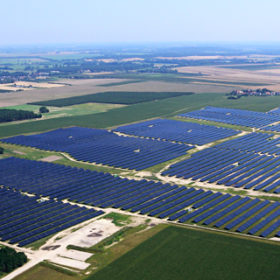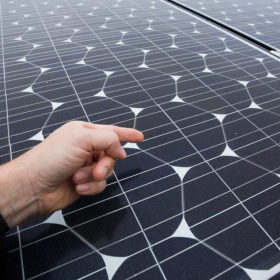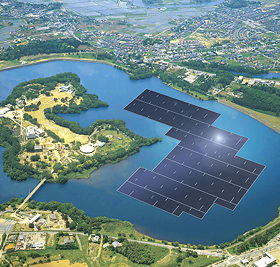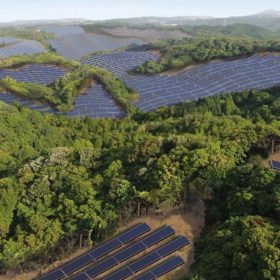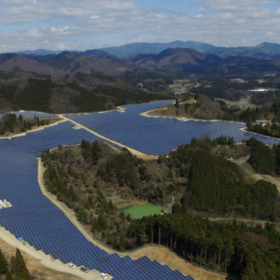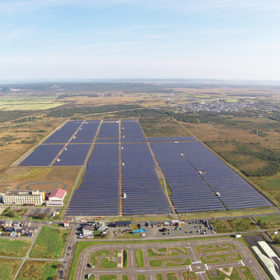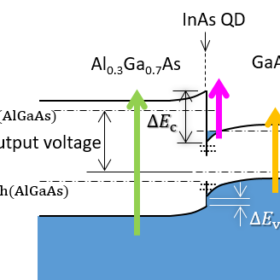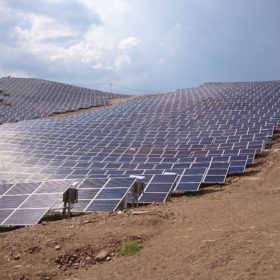Solar Frontier’s operating loss widens to $26.4 million in Q1
The CIS thin-film PV specialist has posted an operating loss of JPY 3 billion ($26.4 million) in the three months to March 31, from JPY 2.6 billion a year earlier. Net sales fell 41.3% on the year to JPY 22.2 billion.
Panasonic’s 2016 profit falls 9.6% as solar sales sag
The Japanese electronics group posted a net profit attributable to shareholders of JPY 149.4 billion ($1.3 billion) in the fiscal year to the end of March — from JPY 165.2 billion a year earlier — as declining sales of solar panels in Japan eroded its earnings. The group’s net sales fell more than 3% on the year to JPY 7343.7 billion, although its operating profit rose to JPY 276.8 billion, from just JPY 230.3 billion a year earlier.
Kyocera’s net profit falls 4.8% to $925 million in 2017
The Japanese group’s net income attributable to shareholders fell from JPY 109,047 million ($970.9 million) to JPY 103,843 million in the 12 months to the end of March 2017, partly due to declining sales from its solar business. It did not reveal its total PV module shipments for the year.
Kyocera supplies modules for 92 MW PV plant in Japan
A joint venture of four Japanese firms invest $315 million for a solar project in the south of the country. The solar park is scheduled to start operation in January 2020, producing 99 MWh annually.
Pacifico starts building 258 MW in western Japan
The Tokyo-based developer has begun construction on what it claims will be Japan’s biggest PV project upon completion in September 2019.
Kyocera says PV output steady despite domestic plant closure
The Japanese manufacturer says it expects to produce about 1 GW of solar panels in the year to March 2018, roughly in line with its output in the preceding fiscal year.
Japan may cancel 27.7 GW of approved PV capacity
The Ministry of Economy, Trade and Industry (METI) has said that it may cancel feed-in tariff (FIT) approvals for 456,000 projects, or roughly 27.6 GW of capacity, as the prospective developers of those projects failed to lock in grid-connection agreements by the government’s March 31 deadline.
Japanese scientists seek to develop solar cell able to absorb spectral components of longer wavelengths
The new technology is designed to capture the spectral components of longer wavelengths that are usually lost during transmission through the solar cell. The Japanese scientists are using up-conversion of below-gap photons to reduce power losses and increase the cell efficiency.
Getting ready for terawatts of solar (with charts)
Researchers from NREL, Fraunhofer ISE and Japan’s AIST have released a new paper which looks at the barriers to deploying multiple terawatts of solar PV and what can be done to overcome them.
ISE Group, Total and SunPower switch on 27 MW solar project
French energy giant Total and its affiliate U.S. module manufacturer SunPower, in partnership with Japanese egg producer ISE Group have switched on a 27 MWp PV power plant in the city of Nanao on Japan’s Honshu Island.
